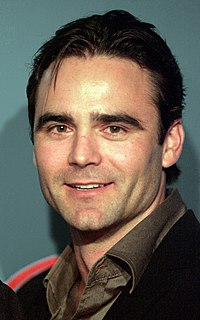A Quote by John Carney
I think ultimately audience members like to see someone controlling the quality of a film. A lot of films you see are made by committees and studios and producers.
Related Quotes
I think distribution has become a lot harder. With the whole explosion of digital video, there's just a lot more people making films. Distributors have a lot more choice. I do think there's an audience out there for small films. It's obvious to me what the studios do: they've co-opted independent film. They all have their independent arm. They can afford to crush the competition.
Filmmakers need to realize that their job isn't done when they lock picture. We must see our films through. Studios no longer do this for a large percentage of films. The odds that your film will get a major campaign are dim these days. So you must find and nurture your own audience and make sure your film has a life.
It was Tim Burton's 'Batman' in, what, '89, I think? What we could see was there was someone behind the curtain controlling all of this, and you could see it from one Tim Burton film to the next, that the guy who made 'Edward Scissorhands' also made 'Batman.' You could connect the dots because his style was so distinct.
There's a thing I really mind hearing, when someone says: "That's not my kind of film, I don't want to go and see that..." I don't believe that, I don't believe that it's possible to write off a whole genre of filmmaking - "oh I don't like subtitled films", or "I don't like black and white films", or I don't like films made before or after, a certain date" - I don't believe that.
All the interesting films are now being made by their subsidiaries for very low budgets. But the studios are not making money. They're making these big, very expensive pictures that take a lot of money but don't really pay for their costs. So they're having a very difficult time. I can see the system breaking down. I think the American studios are a reflection or a metaphor for American industry altogether, which is failing in the world. Its economic domination is being broken down and I think the same thing is happening to the studios.
I just remember not having access to films as a young person who loved films but living in Compton. In order to see the film, I had to get on the bus and travel quite a ways to get to an arthouse theater - none of which you're gonna find in black and brown communities - to see anything that was outside of what the studios fed me, and that's not the case anymore.
I think a lot of women who are celebrities and who are very beautiful have terrible problems with their men being very controlling. Women allow themselves to be dominated and controlled by men in all sorts of other ways that are very complicated, you know? I don't really see a lot of women engaging in discussions about the struggles and power relations with men and their lives, like their bosses, boyfriends, husbands, coworkers. I don't see that happening very often, whereas I see a lot of misogyny on the internet. I see a lot of hatred towards women and a lot of fear of women.
I hadn't been there [Comic-Con] before. It's pretty eye-opening, when you haven't been there, just with the sheer amount of fans that are there for different shows and films. It's like a big fan symposium, in a way, as well a way for film studios and television studios to really promote their product to their loyal audience base. It was an experience.
I think the biggest challenge was being aware of a certain audience that was going to see this film [lone survivor]. There's a big difference from a typical movie, journalists and critics and film goers that go see it find that, that's the general experience you have as a filmmaker. So that just kind of proves my point that there's a really different audience.
The film studios learned to our dismay but to their pleasure that if they spent $200 million making a film they could make half a billion on it. So they were not interested anymore in quality films... They can't afford to be that risky at those prices. Consequently you're getting a lot of remakes, sequels, dopey comedies full of toilet jokes...



































